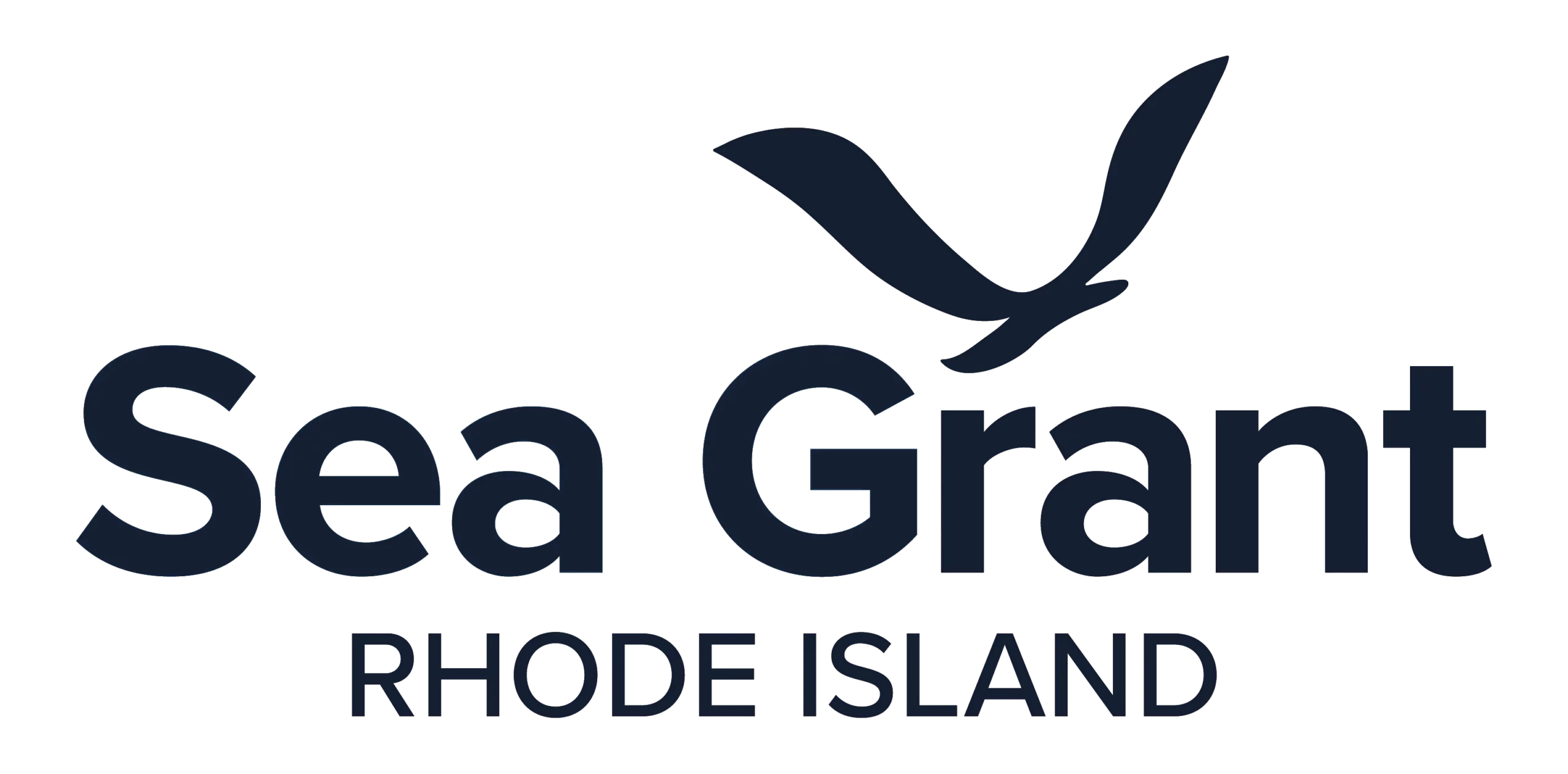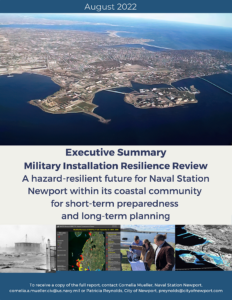Naval Station Newport (NAVSTA) is an important part of the Aquidneck Island community, but the three host municipalities had separate plans for municipal resilience and for emergencies such as hurricane evacuations, and NAVSTA did not have a resilience plan of its own.
As part of a coastal resilience planning effort in 2020-2022, a multidisciplinary team of modelers, social scientists, landscape architects, and engagement specialists from the University of Rhode Island, NAVSTA Newport, the Naval War College, the Naval Post Graduate School, and the City of Newport assessed infrastructure risk and created an implementation action plan to “protect and preserve military readiness and defense capabilities” while supporting continued community economic development. Some of the priority recommendations are being acted upon today.
NAVSTA Newport’s tenant command missions and operations depend on the resilience of its critical infrastructure and that of Aquidneck Island host communities: Newport, Middletown, and Portsmouth. These communities provide water, energy, transportation, housing, emergency/medical services, and other critical infrastructure and services for the military base and its population.
The Military Installation Resilience Review Report from this project outlines the MIRR process, its tools, and its recommendations for resilience building of NAVSTA Newport together with the municipalities. The team developed decision-support tools for modeling, data collection, and communication that can be used for real-time preparedness and response, as well as longer-term planning. They also modeled 12 different storm scenarios with three different sea level rise events to aid planning, assessed the impacts to 152 critical infrastructure assets, and exchanged knowledge and collaboration for community resilience.
Rhode Island Sea Grant/URI Coastal Resources Center’s Pam Rubinoff served as an engagement specialist on this project, one example of how, nationwide, Sea Grant programs help communities build resilience to coastal climate hazards.
Rhode Island Sea Grant is a member of the National Sea Grant network, which consists of federal-university partnerships between the National Oceanic and Atmospheric Administration (NOAA) and 34 university-based programs in every coastal and Great Lakes state, Puerto Rico, and Guam. Learn more about how the Sea Grant network brings the latest science to bear on addressing ocean and coastal issues in the March 2024 special issue of Oceanography.

